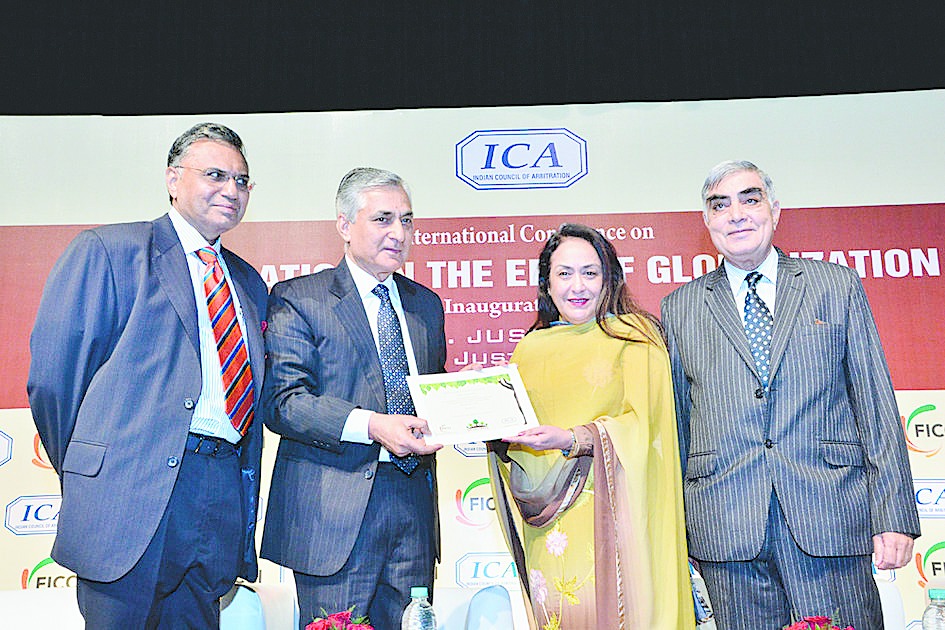
New Delhi, Dec. 12: Chief Justice of India T.S. Thakur has said arbitrators with "impeccable integrity" can help avert interventions and changes by the judiciary in arbitral awards.
"Integrity of the arbitrator is very essential. If he is a man of impeccable integrity, we would like to uphold the award. However, if there is a slightest doubt, then we may not," Justice Thakur told an international conference on Friday.
Arbitration is an alternative dispute resolution system aimed at avoiding regular courts for expeditious disposal of cases. But unlike the regular judiciary, in arbitration, the single arbitrator or arbitrators in commercial disputes are chosen by the parties to the dispute after mutual agreement. Arbitrators can be retired judges of high courts and the Supreme Court or non-judicial experts from other fields.
The award (order) passed by the arbitrator is mostly binding but liable for challenge before the high courts and the Supreme Court on grounds of perversity or dissonance with public policy.
Inaugurating the conference on "Arbitration in the era of Globalisation", organised jointly by the Indian Council of Arbitration and the Federation of Indian Chambers of Commerce and Industry (Ficci), the Chief Justice said arbitration was in vogue in ancient India when Lord Krishna acted as arbitrator between the Pandavas and Kauravas.
"It is a divine function of adjudication. Even God has to take up the task. Never mind Lord Krishna failed. Those who do not go for arbitration are bound to face disaster," he cautioned, drawing an analogy with the annihilation faced by the Kauravas after they decided to fight a war instead of resolving the dispute.
Justice Thakur contested allegations that courts unnecessarily interfere with awards passed by the arbitrators as, in several cases, the losing party moves courts.
The Chief Justice pointed out that if the arbitrator was of impeccable integrity, courts normally did not interfere with the awards.
Any such award "must be fair, in conformity with law, there is application of mind and is unbiased," Justice Thakur said.
He noted that courts could not ignore a flawed award if it went against public policy or suffered from perversity.
The Chief Justice said courts would review awards, particularly in cases where an arbitrator might be biased towards one party because of "extraneous considerations".
Justice S.S. Nijjar, former Supreme Court judge and current governing body member of the ICA, lamented in his keynote address that courts were increasingly interfering in awards passed by arbitrators, frustrating the very purpose of having an alternative dispute resolution system.
He expressed scepticism about the NDA government's proposed amendment to the Arbitration and Conciliation Act, 1996, to ensure that proceedings under the act are completed within six months or one year. Now there is no time limit for passing an award.
Justice Nijjar was of the view that arbitration being a complex process involving pleadings, oral submissions and evaluation of facts, such short time-limits should not be fixed.
N.G. Khaitan, the president of the ICA, wanted the government to permit foreign arbitrators to participate in domestic arbitration proceedings.
Such a step, he said, would go a long way in making India an international arbitration hub. Singapore now occupies that position.
Jyotsna Suri, Ficci president, and Arun Chawla, Ficci assistant secretary-general, were also present on the occasion.










